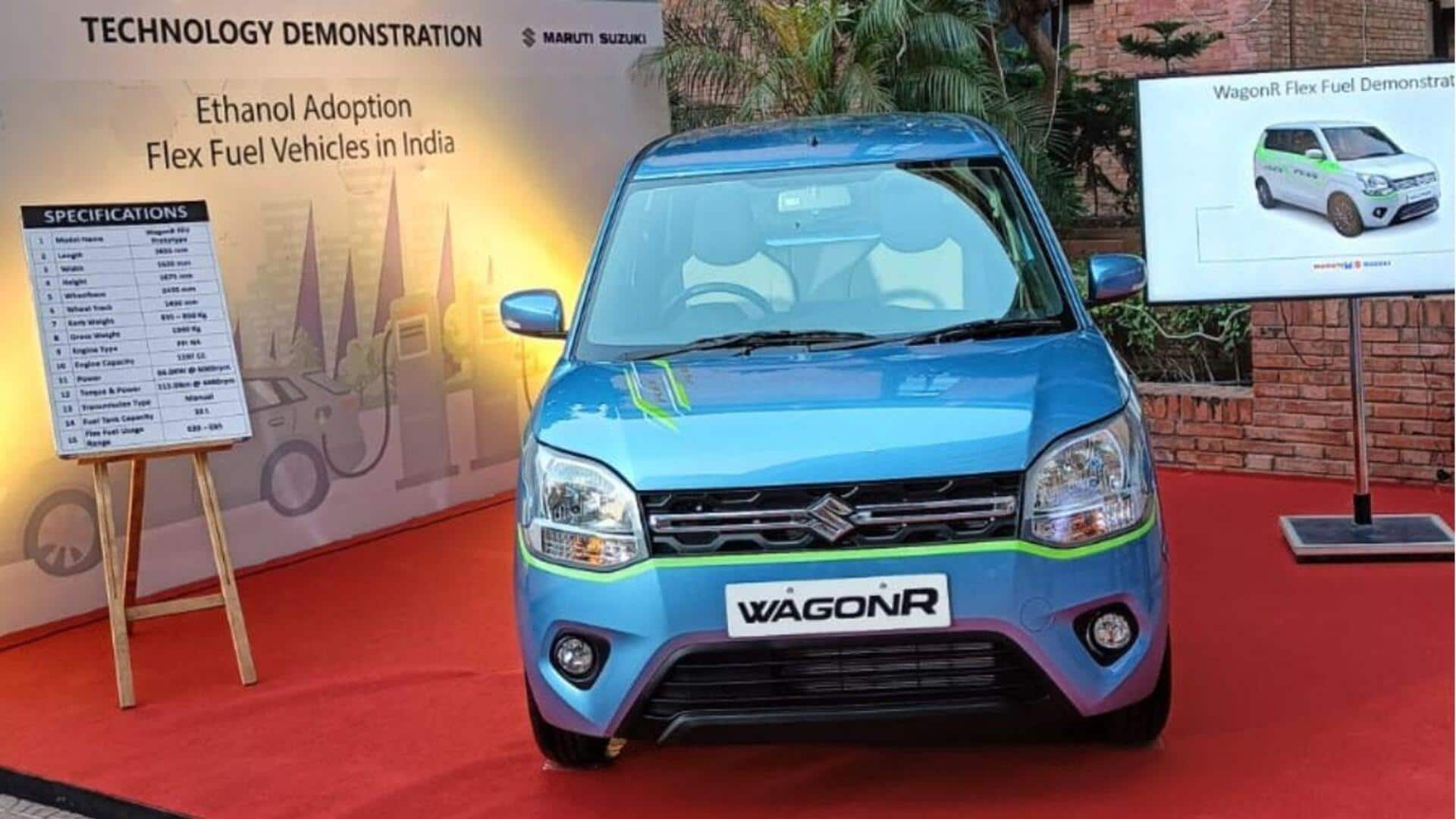
Made-in-India biomethane-powered Suzuki WagonR to debut at Japan Mobility Show
What's the story
Suzuki is set to showcase a biomethane gas-powered WagonR at the 2023 Japan Mobility Show. This made-in-India vehicle was previously displayed at the G7 summit in Hiroshima in May. Compressed biomethane gas (CBG) is a crucial part of India's push for cleaner and more sustainable fuels, and the WagonR CBG was developed at Maruti Suzuki's research and development center in India.
Details
Maruti Suzuki's CBG initiatives and flex-fuel prototype
Since 2022, the WagonR CBG project has been in the works, and Suzuki will share more details on its CBG initiatives in India at the Japan Mobility Show in Tokyo. In December 2022, Maruti Suzuki unveiled a flex-fuel WagonR prototype that can run on an ethanol-petrol blend ranging from 20% (E20) to 85%(E85). The company's chairman, RC Bhargava, has highlighted the significance of hybrid technologies, CBG, and CNG in reducing India's carbon footprint.
What Next?
Understanding CBG and its benefits
CBG can power vehicles and engines, much like compressed natural gas (CNG). However, while CNG comes from petroleum sources, CBG is derived from the decomposition of organic matter such as agricultural waste, cow dung, sewage, and municipal waste. After decomposition, the biogas is refined to lower carbon dioxide content and increase methane levels, making it more similar to CNG. CBG's organic origins allow for by-products of decomposition to be used for agricultural purposes.
Insights
India's investment in compressed biogas production
Back in 2020, India's then Minister of Oil, Dharmendra Pradhan, announced a $24 billion investment plan to produce 1.5 crore tons of compressed biogas from 5,000 plants by 2023. This investment would help India cut costs, as the country currently imports a significant amount of CNG to meet domestic demand. The introduction of CBG-powered vehicles like the WagonR could play a vital role in promoting cleaner and more sustainable fuel alternatives in India.